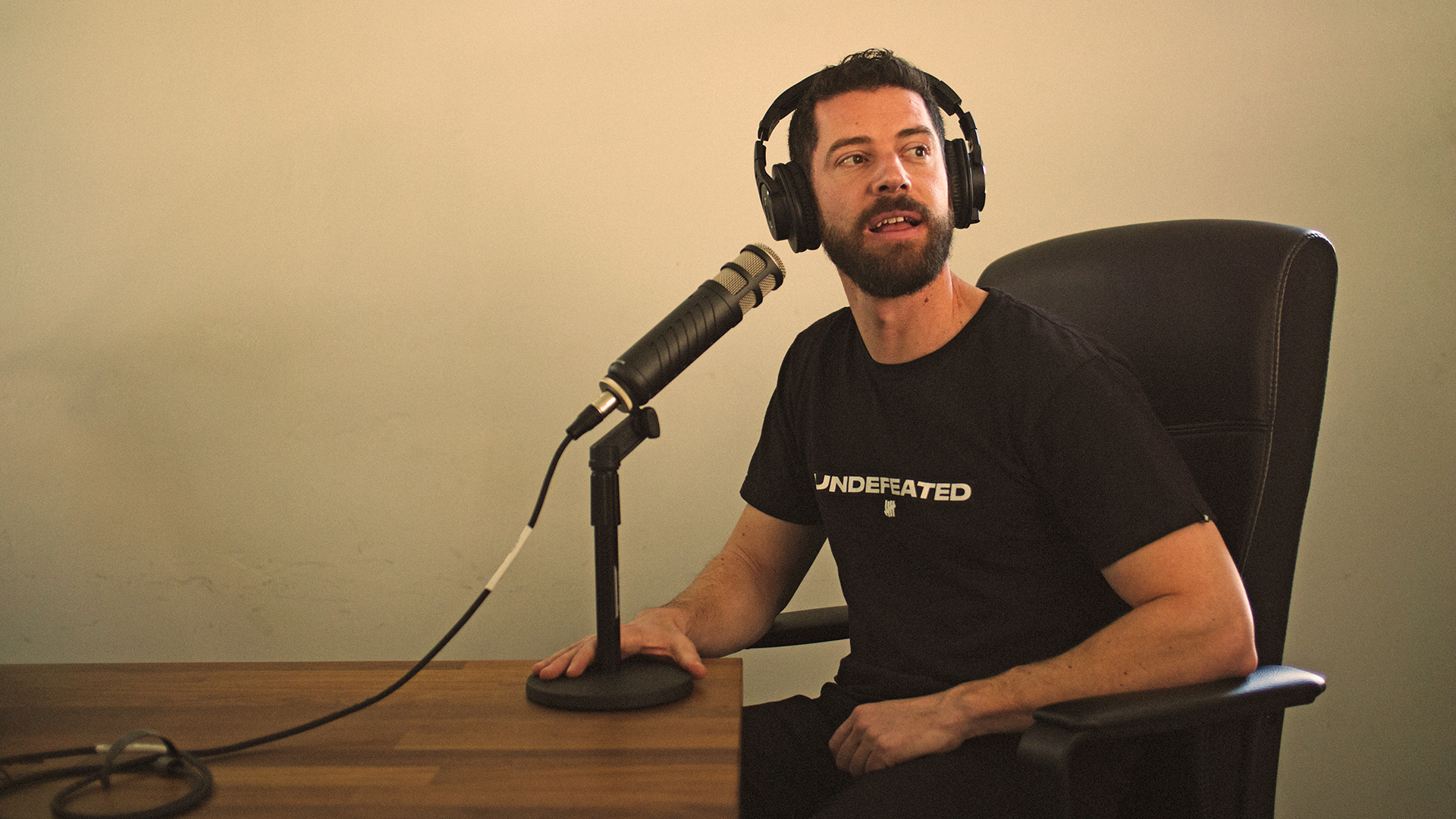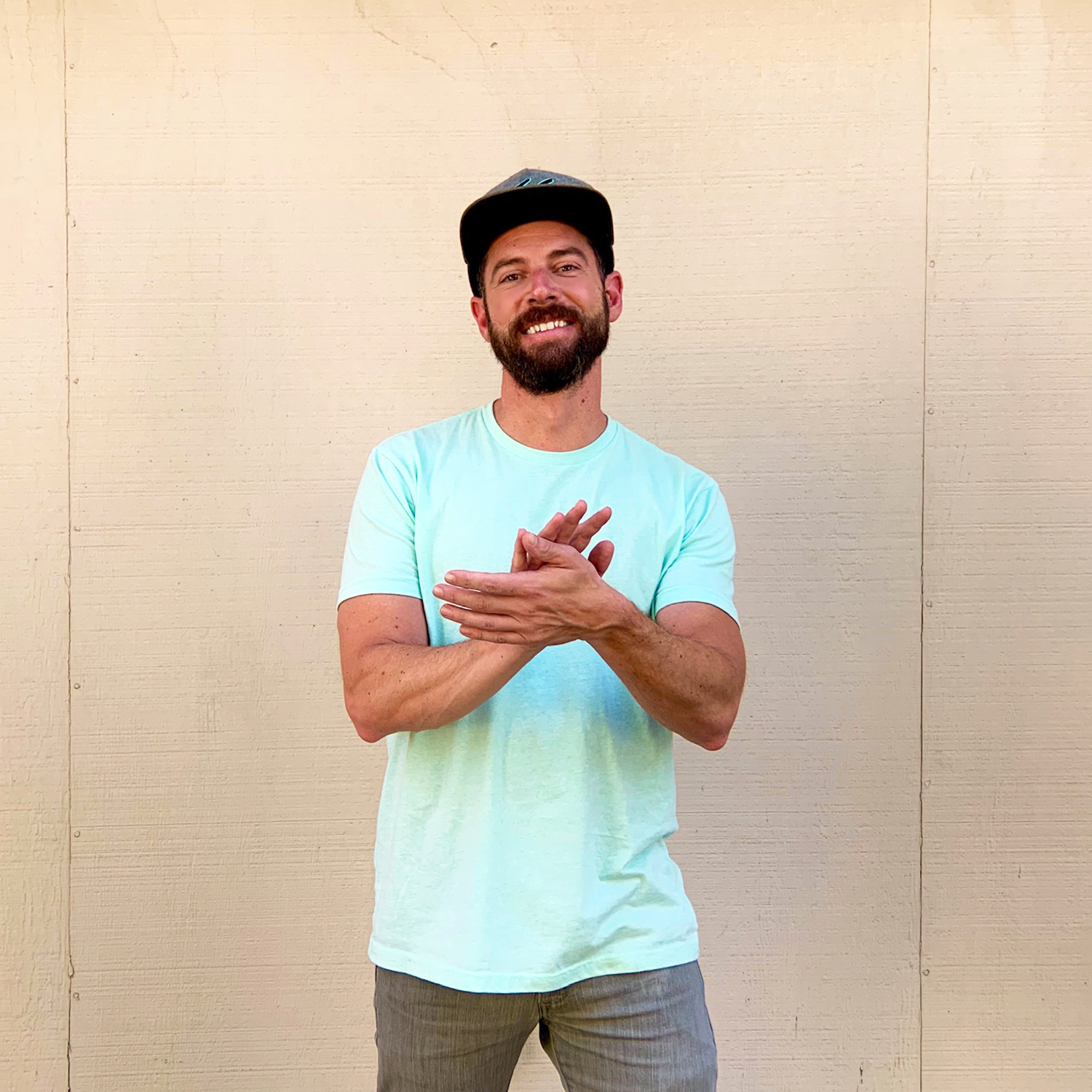An interview with Mike Lardi
Some stories are too rough to be true, and yet, reality often times is more dramatic than movies. This is one of those times.
Today’s guest story will make you see yourself in it even though you might not have everything in common. Perhaps you haven’t experimented what it’s like to be a homeless young person, but I can assure you, again, you will see yourself in this story. This a tale of lost dreams, and the void that comes with it. From the excitement that makes you want to be on top of the world to the irritable mental state of realizing that everything you promised yourself and the world you will accomplish, are just mere glimpses of a lost reality. This was my guest’s life.
This is the story of Mike Lardi, a successful online coach and bipolar strategist, who once used to be lost and unaware of reality.
The now host of “The Bipolar Now Podcast” and creator of the groundbreaking online course “The Peace Plan for Bipolar” was once a bright young man who used to have a lot of ideas and passion, only to find himself lost on a beach, naked with a manic psychotic episode.
But no rock bottom story is complete without the story of the successful climbing back to the top. Mike himself will tell you, the climbing is not easy and the top is not without struggles, but everything is worth it, and you can perfectly have peace and a wonderful life, even if you have mood and anger issues, even if at one point you find yourself breaking from reality and walking naked on a beach, unaware of what you are doing.
Without further ado and told by the man himself, I give you “From young homeless to mental health leader.” Off we go.
Chapter 1: The good, the bad and the bipolar disorder
Back in 2011 my life was a disaster. At least, internally. I had just quit my job as the art director for a local church, which was a very confusing choice given the success of the program I had created. But I was experiencing a lot of friction with other leaders there, and my mental health was deteriorating rapidly. I also began to drink heavily.
In an attempt to stay forward-moving I took a “stop-gap” job working as a video editor at a friend’s office and spent my nights at his house with no idea what to do for long term plans. My alcoholism, which had never been a feature in my life previously, ramped up the feelings of extreme ownership over my new job mixed with an irritated hopelessness that I was nearly 30 years old and living on someone’s couch.
Many strange and frightening episodes ensued, and I ended up driving my car hard enough to blow the engine. That cut off my transportation to another part-time night job and I resorted to getting rides for everything I needed to do. This only intensified the disconnect that I felt between who I was and what I should be living for.
More chaos ensued and eventually I had what is known in the clinical world as a “psychotic break” from reality. I walked around homeless on the streets of a dangerous city and could no longer separate reality from what I was seeing, hearing, smelling, and feeling. It. was. bizarre.
So much happened to me in the space of only a few days, but soon I wound up in a far away beach city, taking off my clothes in public and doing graffiti. The police were quickly dispatched, and I found myself in an emergency room being held down by six nurses and a security guard. They were concerned that I’d hurt someone and escape. I couldn’t leave the room and had to urinate in a small plastic cup (not an easy feat).
Days went by where I was admitted into a mental ward for my altered state of being. There’s so much I remember, from the staff, to my roommate, to the people, and the culture “inside” the unit. My family was bewildered by all this and we could only engage in “small talk” for the brief visits that were allowed. They didn’t know what to ask or think or even believe!
I was transferred to another hospital, where more of the same ensued. And then it was on to yet another hospital. Things move quickly on the inside, even though it’s the most boring environment you could possibly imagine. And that’s the point. It’s designed to be low friction. It’s supposed to pull you down or out of whatever incurable funk you are in.
My final discharge was both a relief and a strange and unshakable discomfort with the future. I was diagnosed with bipolar 1 disorder, psychotic features, and now I had more questions than answers. What’s worse was I didn’t really like the answers that were popping up in all the books and articles. My new reality was to accept a life of quiet desperation and small aspirations. I’m a visionary. A big thinker. That never sat well with me.
It wouldn’t be for another four years, but I knew I had to do something good to turn around my story and help others find their way.

The thought of having a podcast didn’t enter my mind until I started listening to content from online businesses that deal in coaching leaders and developing leadership skills. I knew intuitively that I had to take ownership over my mental illness, since it is most effectively managed through becoming an expert at managing stressful life changes before they turn into crises.
This also includes managing and diminishing exposure to difficult people and charged environments. Setting standards in line with your convictions, even resetting personal expectations to maintain those standards and convictions, does wonders. This is the message that I live and teach, and it flies in the face of this attitude of playing it small with your recoveries from mental illness. Where I do stand with the establishment is doing whatever you can to embrace a generally health-forward lifestyle.
Anger is both a trigger for and a result of bipolar symptoms, so I work very hard here, pushing myself continually to get better at what I do and what I believe about myself. I adopt a “growth mindset” to accomplish this. It’s very hard to become frustrated with myself when I’m clearly making progress on the big goals in my various life accounts (emotional, work/mission, intimate relationship, health, finances, etc.) When I’m growing as a man and a contributor to the improvement of society, I don’t have much time to entertain revenge, arguments, or proving myself. This is a good thing.
So yes, by managing your own personal development—and there are many people who can influence you and teach you proper skills—but by keeping yourself in healthy convictions you keep this disorder from being triggered. This is a physical-biological illness, so you feel depression in your thinking, in your body, and in your spirit. The same goes for mania. And there are other “states” such as intense anxiety that can be triggered in addition to the psychosis I mentioned. It’s lots of fun (not really) trying to learn all this through lived experience!
But live through it I did, and my doctors were the first to suggest that I turn my management style into some kind of program that others can take and learn to copy in their own lives. They told me that no other patient with bipolar disorder was showing the kind of consistent improvements in their life, which are typically unheard of. This is a lifelong illness, and some people “cycle” through their symptoms over and over because they don’t know what else to do.
To be dead honest, I was excited about being pushed to do something (the leader in me craves this opportunity), but I was also TERRIFIED of speaking out and speaking up and being a teacher and a coach for others on a condition that medical science has no answers for. I’m leadership-oriented, but in a very quiet way. I never like the spotlight. It’s absolutely nail-biting for me. But soon I found myself constructing the bones of the program, and I needed a way to talk about it publicly and offer enrollment… so in walks the podcast!
The Bipolar Now Podcast is my weekly chance to show and tell about how you can build a life that you’re proud of, when there’s a mental illness attached.
I’m super un-apologetic about this.
(My reason for doing this goes back to my conversations with my doctors on my health care and mental health teams.)
The show attracts a diverse following mostly due to the unique nature of the subject matter, which is this specific disease. I got very focused on who to serve with this show, because there are many, many people out there who suffer from the effects of bipolar disorder, but they’re not willing to put in the work to change their situation. They think they’ve tried everything.
This is not the person I reach. I find the ones who are daring to put their mental health before anything else in their life—before comfort, before ego, and before fear—because unlike the rest of the world, it’s not guaranteed that they’ll face a predictable mood or energy level as they go about their day. I put a message of joy in the ears of those who can radically accept their diagnosis. Those are the ones who will defy the statistics and take life on their own terms.
The future is wide open for me and incredibly exciting and I give this joy to my audience and my students. I’m not perfectly sound in my mental health. Sometimes I get sick in response to a trigger or confluence of triggers. But it doesn’t matter, nor is it even possible with the amount of stress that I have to manage in developing an online business that helps people develop wisdom and gain practice in their management style of this disease.
I just keep my vision clear for what I can do when I become the world’s greatest trainer on mental health. It’s a big enough declaration and vision for my work identity to keep me focused there for the next 20 years. This powerful freedom is my way of showing those original forecasters that a big, fun life can still be built in the midst of contending with bipolar disorder. And I love it!

Chapter II: Anger state of mind
When it comes to anger inside a person’s life, there are very few “accelerators” that can compare to a mental disorder like bipolar. I often explain the illness as an amplifier of every possible emotion you could ever feel. Are you stoked on something? An active bipolar state like hypomania makes you feel uncontrollable charisma, electricity, and buzz (not to mention sexual super-intensity). You can be intoxicated on nothing more than your own brain chemistry and stress-activators malfunctioning.
The same is true of anger. Because of the instability from sudden and dynamic mood shifts, you might be agitated by things that you’d normally overlook. Mere comments can turn into hyper-offensive insults. And if you descend into bipolar depression, you might be sad, yes, but you might also be turned into someone who lashes out quite easily. People who are known for their humor and positivity can de-escalate quickly if their bipolar becomes triggered.
The biggest misconception is that bipolar disorder makes a person dangerous (as in, violent). I find more often than not that it simply makes them more irritable than they’d normally be, but only during times of a mood being present, such as depression. And if the right mixture of elements were present, they’ll be more prone to getting into relationship problems or doing something that gets them fired at work—which only creates more friction in a person’s life.
But most people with bipolar disorder can recognize that they just need to blow off some steam and cool down and get back to business. I’ve never once been frightened around any of my students or friends who have this disorder. And we talk openly about anger, as a way to plan around it and be smart.
When it comes to continually dealing with anger, I see most people in my audience making the mistake of not viewing the specific situation or the person or the topic (for instance, money and family) as a source “trigger” for their bipolar disorder. It feels like they’re about to blow up suddenly, but in reality, the circumstances were building and could have been avoided. It’s an illness that feeds off of you feeling that intense emotion and it drives you further into it, with worse and worse consequences as you go.
People need to know their triggers and modify their exposure to them or set more sensible expectations for themselves. This ain’t easy. But if you want peace, you’ve got to try a different approach until you see yourself improving and not getting agitated. After a while, your brain won’t feel the need to “rage” or “cut the person down” and you can spend that energy on things that are far more rewarding. Remember, people who are focused on improvement don’t have much room for being upset, nor do they tolerate their triggers past the point of a regrettable act.
Aggression is common in bipolar depression, which baffles people who don’t know about the differences between bipolar disorder and the more common “unipolar” depression. In the latter, it’s common to be “down” or “sad” and virtually drained of energy. But in bipolar depression, irritability (and energy) can fuel intense arguments and actions. Bipolar depression and unipolar depression don’t even originate from the same part of the brain. The reason someone would act on their aggression in a violent way is because they didn’t remove the trigger or leave the tense environment.
My anger would “spike” only while I was sick, which could often be more than a year at a time when I was healthy and growing. This is a terribly accurate story, but I would occasionally clash with my roommate, who was also my boss at the church job. At one point we were fighting every day and I was ready to injure him in a big way. But a family friend diverted my anger into sending me off on an errand that night. That was a majorly smart move on her part, and my roommate will never have to live with the memory of being assaulted by me.
We have since reconciled and lived in peace, along with a handful of others who were at the receiving end of my anger. Today, 8 years later, people know the “real” me, and I’m prized for my gentle spirit. It’s normal for someone to tell me, “I’d never see you harming anyone, Michael. I can’t believe this is something you have to deal with!” I continue to keep a close eye on my known triggers so that stories like this don’t have to come true again.

The Leader
Looking back is hard for me to do because I live so far out in the future most of my non-working hours. But when I do look back, I’m proud of the fact that I took what little was left in me to continue living and I grew it into something that no one on earth can steal from me and no debilitating disorder can crush. I had nothing to live for, but for a sliver of light telling me to keep going. Now I’m running my race, strong!
Mood and anger issues tend to stem from a lack of awareness. When you’re not aware of something, it’s natural to let it continue and to grow into something you never wanted. What I do on The Bipolar Now Podcast is make plain the hidden things. And for those who want to go a step further and see the overall strategy that I teach from, you can download a copy of The Growth Plan for bipolar, where I outline the skills and activities to focus on at each leg of the journey. With this guide you’ll see where you’re at in your management style of this illness and never have to second guess what to do next.
And if you’d like someone to support you in your story, we have a whole tribe of loyal listeners and growth-seekers at The Bipolar Now Podcast Group on Facebook. Make some new friends and learn some cool stuff while you’re there!
Nothing is impossible! Not if you ask the right questions and make the courageous moves. Don’t let your life and your best work and your most prized relationships get hijacked by mood episodes. Especially when peace is what you’re craving. It’s work, but it’s closer than you think.
-MIKE
Addendum
You don’t have to have a mental illness to have your dreams crashed after you were so sure you were off to a great start. You don’t have to have a mental illness to have high expectations for your life and then suffer because you don’t meet them. You don’t have to have a mental illness to feel lost, alone and with no purpose, my friend, but if you do, remember: monsters get bigger when we ignore them. At some point, we must face the dragon. And face the dragon he did.
These are my “takeaways” from Mike’s story:
- Don’t chase rabbits all day long: Getting excited and feeling low needs to fulfill a purpose, and that purpose is not to make us mentally unstable. The more mental unstable we get, the further our life dreams and meaning, go. To make sure you can have a healthy and stable mood, it would be wise to learn what the consequences of our different moods are, so we can manage them better. If you understand how your energy works, you will not chase rabbits all they long. You will not use your high energy, only to have it burned and realize you didn’t even care about the rabbits, and now you are just sad, exhausted and unmotivated. Instead, find something to focus on and the most effective way to produce results with it. One step at the time. Don’t abuse your high energy, it precipitates the hypo symptoms!
- It’s all about boundaries: You must understand what triggers your episodes, so you can get ahead of the game. If hanging out with certain people, or working certain amount of hours, are making you irritable at the point your brain can’t handle it, you got a responsibility to make sure you establish boundaries and most of all, that you don’t break them.
- The double edge sword: The brain has a tremendous ability. It can make us see things that are not there and wander off to beautiful places where we don’t have to suffer anymore, and it can even do that while we are naked in front of people drawing graffities. That very same brain, though, can make you see reality for what it is, with all its sufferings, and still make you produce solutions so you can make other people’s life better and in doing so, finding meaning for yourself. What do you know! Sometimes reality is the beautiful place you wanted to find all along.
That’s it dude. Go monster hunting. My hope for you today is that you get to face the problems that are making your life unstable, so that you can feel good about who you are and what you are capable of. If you happened to be fighting a dragon that looks a lot like Mike’s, then he has your back. If you want to organize your life better so you can control your symptoms, protect your mood and have motivation, you can put your best foot forward with his signature “Starter Sheets”, they are free quality resources and you can download them right away, here.
Also, if you are into smart actionable tactics and detailed plans that actually work, add Mike’s “The Bipolar Now Podcast” to your list of mental health programs to listen to.
It’s always a pleasure for me to have amazing guests, and Mike was a perfect one. The bigger the dragon the more skillful the warrior. That’s what Mike is. I sincerely hope that you’ve learned valuable lessons from Mike’s story, so one day someone can learn from yours.
Don’t forget to share and subscribe.
Until next one! Sam


Wow…..